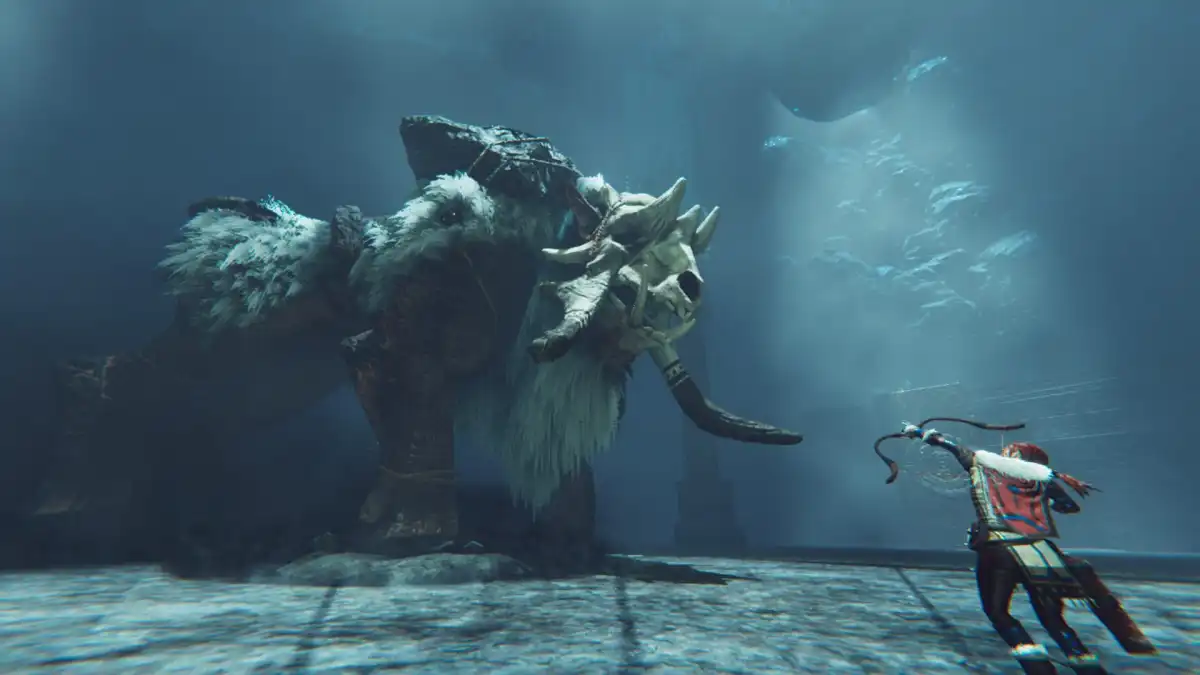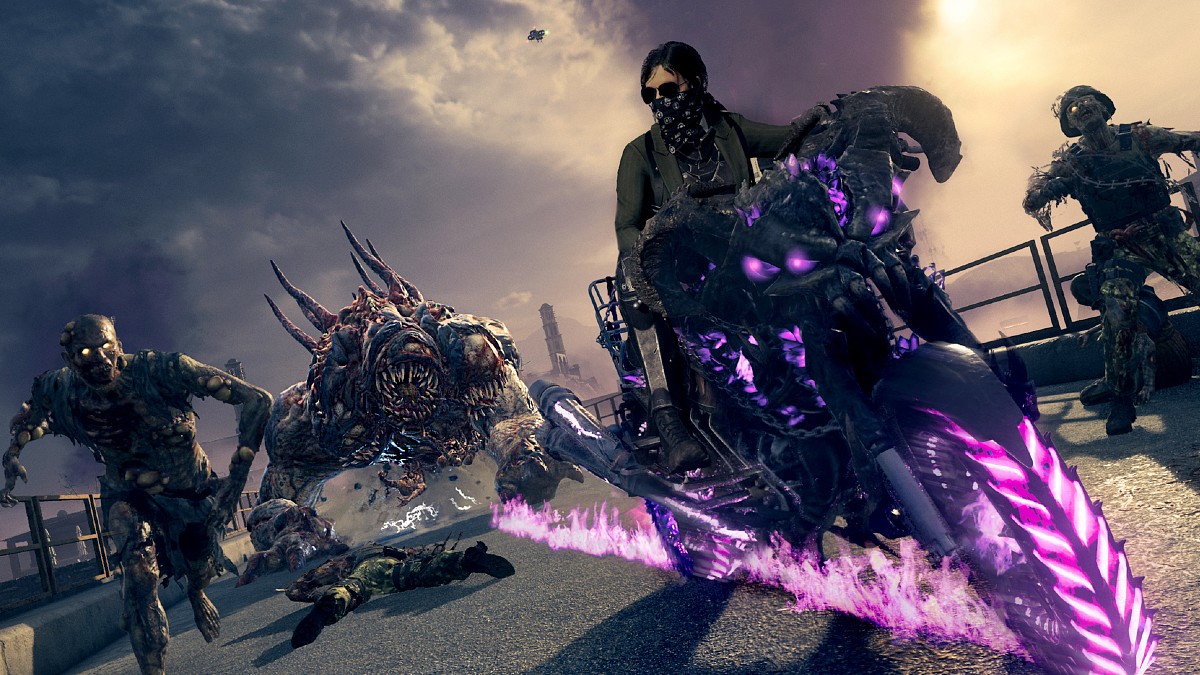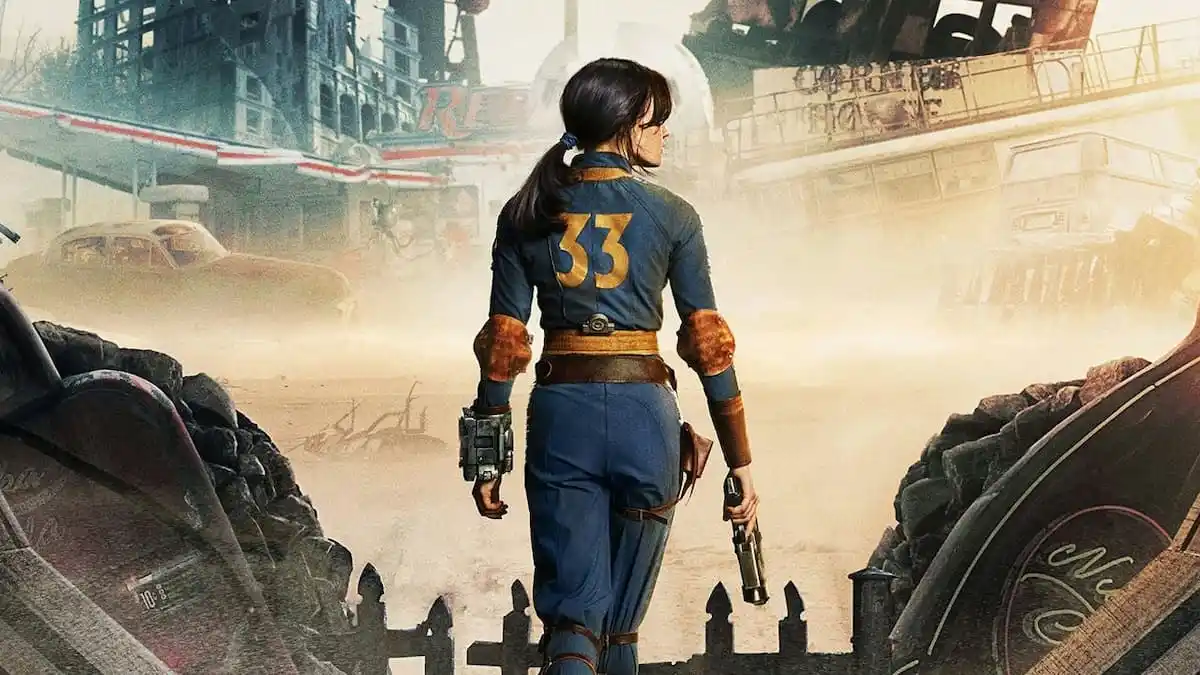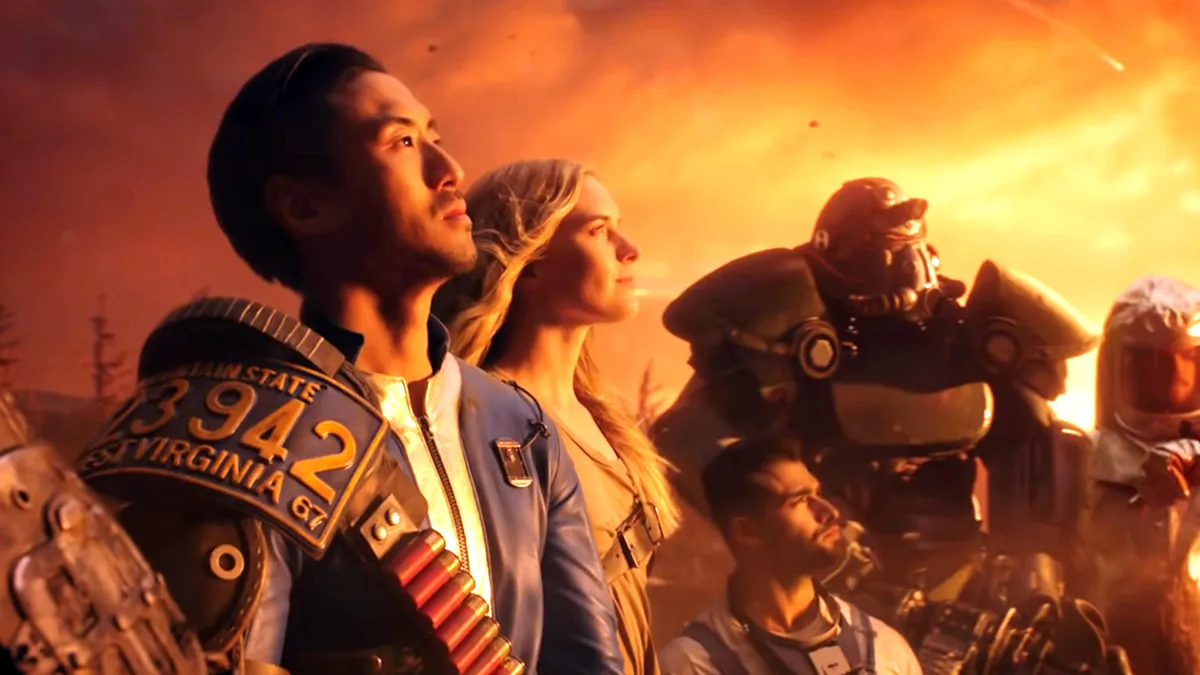Demon’s Souls? Shadow of the Colossus? God of War III? I have to be missing something… I’m trying to remember the last time a game made me excited for its boss battles. But I guess it doesn’t really matter because I have a new last time: Praey for the Gods.
Maybe it’s because of their ubiquity – because you expect them to be present even when they don’t really seem to belong – but a lot of games suck at selling you on their boss battles. Sometimes, as in Bright Memory Infinite, there’s no dramatic tension to the encounters; special enemies simply manifest out of the ether to kick your ass from pillar to post. Sometimes, as in Days Gone, it’s that the boss battle design is so rote that fights cease to feel special. Sometimes, as in Resident Evil VII, it’s that the quality of the battles fluctuates wildly. Too often, boss battles punctuate. the. action. awkwardly. like. misplaced. full. stops. rather than flowing smoothly in context and emphasizing the value of a moment.
Those games I listed back at the top though, and others like Jøtun and Gods Will Fall, do something different by making boss battles the central design pillar. The narrative and the moment-to-moment gameplay are crafted to build towards every boss. They all do it in different ways, but the outcome is the same: You end up longing for the moment you topple the greatest challenges in the game and see what the outcome is.
So it is also for Praey for the Gods. Yes, for the most part, it’s an unabashed Shadow of the Colossus clone, but that takes nothing away from the majesty of what Praey for the Gods achieves. If you’re going to replicate a game, you might as well select one of the most revered projects of the last 20 years – especially when there’s not a whole lot else like it.
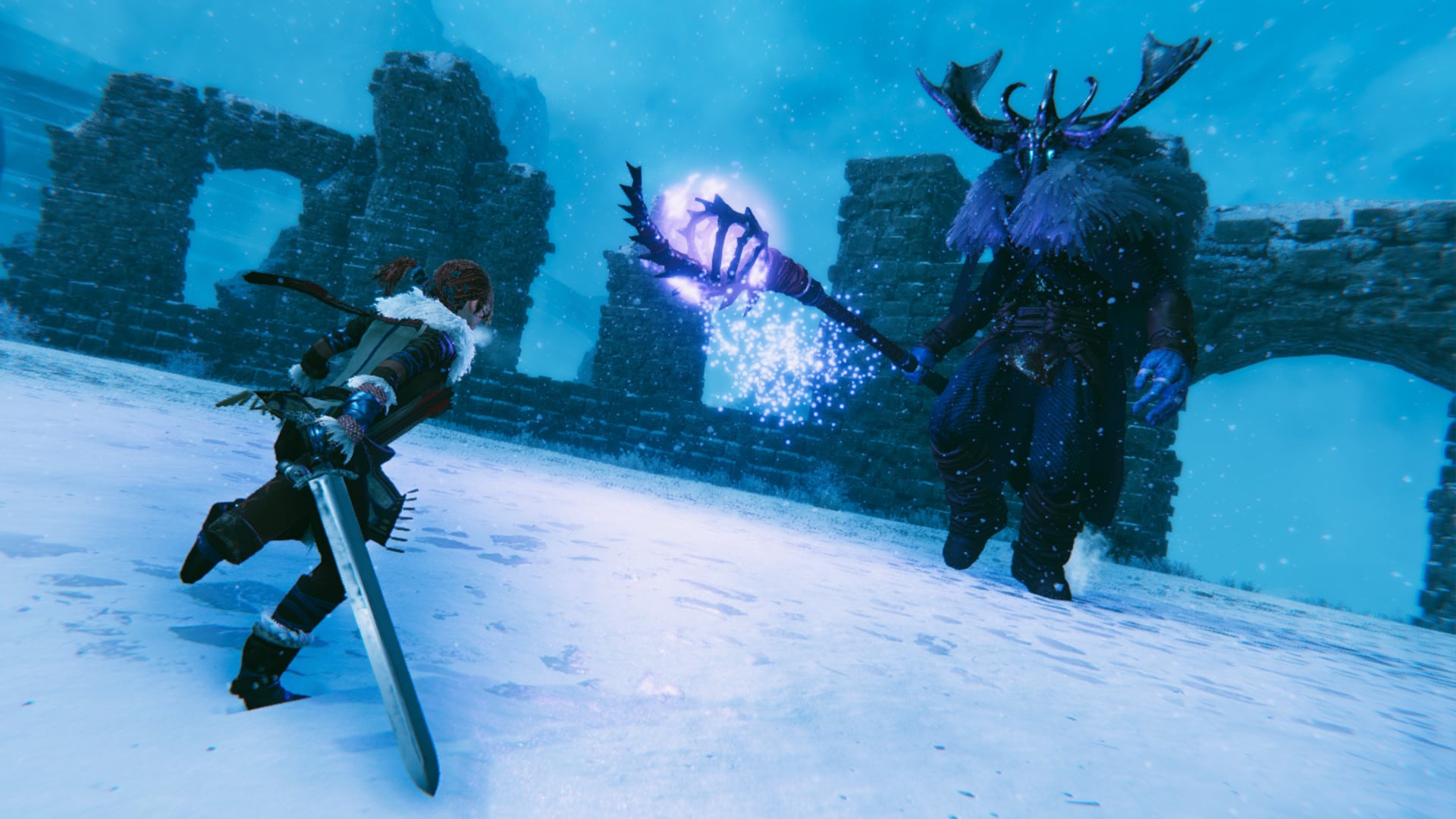
Your quest in this barren, unchartered land is to bring balance to the wider world. You do that by toppling the gods, clambering up their furry bodies to pump piston-like mechanisms built into their bodies, which release clouds of something when fully activated. The connections between these different aspects – and the increasing weirdness of the landscape as you forge forth – are left to your interpretation. Uncovering the vague scraps of information and seeing the world respond tangibly to your actions is one of the things that makes the boss battles feel worthwhile.
But contextualization would be nothing if the fights themselves weren’t compelling. And while the actual mechanics involved in bringing down the gods aren’t all that interesting, the encounter design itself makes all the difference. The usual skills of reflexes, patience, and pattern recognition are necessary, but the gods aren’t designed with them foremost in mind. Rather than obstacles to be beaten down, they are puzzles to be worked out.
They challenge you to understand how to use the game world to your advantage. They challenge you to think laterally about how to gain access to the gods’ vulnerabilities. When do you hold on? When is it safe to let go to regain your stamina? How do you cross a gap that you won’t be able to leap across? These questions define your struggle – and by raising them constantly, Praey for the Gods makes these battles about much more than your skills as a “hardcore gamer.”
They’re the kind of challenges you expect from puzzle or investigation games, transplanted to a game style where they are rarely manifested so cleanly and clearly. I love it. But the funny thing is that I didn’t realize for quite a long time that I loved it.
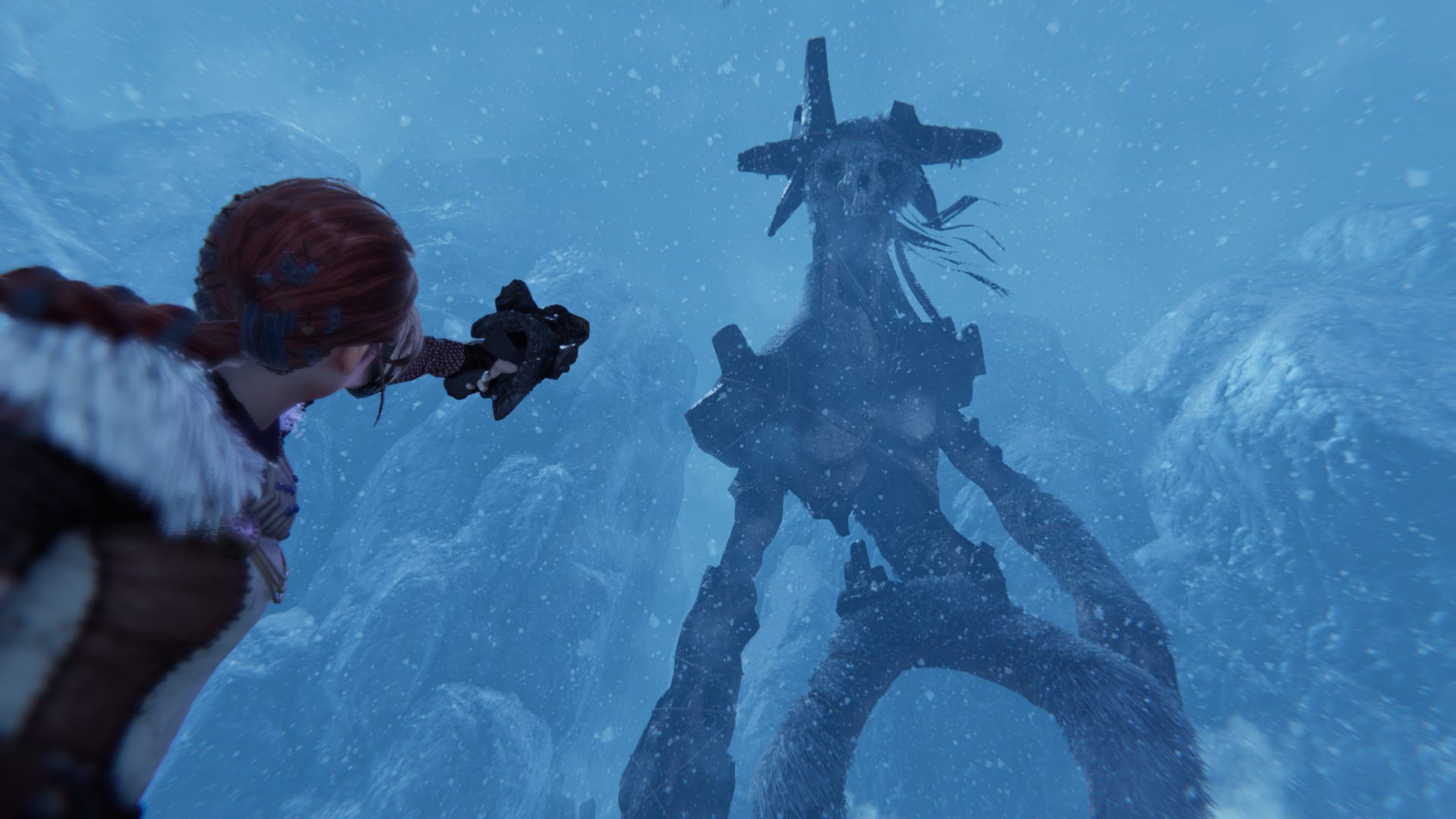
That realization came somewhere between my fifth and 20th time getting curb-stomped into oblivion by the Yeti. I’d solved all of the bastard thing’s puzzles, but for some reason I couldn’t bring all the solutions together in a single battle. I would run out of stamina at the wrong moment, or I wouldn’t be able to wrangle control of my bow when I needed to. I was frustrated, but I persevered.
When it comes to games, I’m stubborn as hell and will stick with a difficult section long past the point of enjoyment simply because I hate not finishing things. But that wasn’t my motivation to see Praey for the Gods through. What kept me playing through mounting fury with the Yeti was the lure of what lay beyond. The wall in the hub told me there were more uglies, and I wanted to confront them. I wanted to pit myself against them and see if I could solve their puzzles. It’s the same urge that pulled me through Valkyria Chronicles 4, the Hitman series, and The Forgotten City, rather than most apparently similar action games.
I’m probably a bit different from many regular players of video games in that it’s not the intrinsic appeal of gameplay that speaks to me. I’m wowed more by the value I find in a gameplay experience – what it makes me think and how it makes me feel. I didn’t expect much of anything when I first booted up Praey for the Gods, but – to my great surprise – it connected with me because it offered a refreshing application of a tired video game trope.

